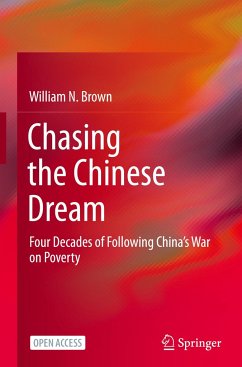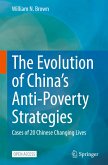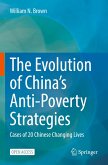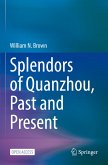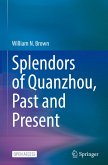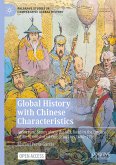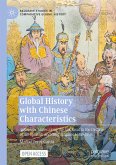This open access book explores the historical, cultural and philosophical contexts that have made anti-poverty the core of Chinese society since Liberation in 1949, and why poverty alleviation measures evolved from the simplistic aid of the 1950s to Xi Jinping's precision poverty alleviation and its goal of eliminating absolute poverty by 2020. The book also addresses the implications of China's experience for other developing nations tackling not only poverty but such issues as pandemics, rampant urbanization and desertification exacerbated by global warming. The first of three parts draws upon interviews of rural and urban Chinese from diverse backgrounds and local and national leaders. These interviews, conducted in even the remotest areas of the country, offer candid insights into the challenges that have forced China to continually evolve its programs to resolve even the most intractable cases of poverty. The second part explores the historic, cultural and philosophical roots of old China's meritocratic government and how its ancient Chinese ethics have led to modern Chinese socialism's stance that "poverty amidst plenty is immoral". Dr. Huang Chengwei, one of China's foremost anti-poverty experts, explains the challenges faced at each stage as China's anti-poverty measures evolved over 70 years to emphasize "enablement" over "aid" and to foster bottom-up initiative and entrepreneurialism, culminating in Xi Jinping's precision poverty alleviation. The book also addresses why national economic development alone cannot reduce poverty; poverty alleviation programs must be people-centered, with measurable and accountable practices that reach even to household level, which China has done with its "First Secretary" program. The third part explores the potential for adopting China's practices in other nations, including the potential for replicating China's successes in developing countries through such measures as the Belt and Road Initiative. This book alsoaddresses prevalent misperceptions about China's growing global presence and why other developing nations must address historic, systemic causes of poverty and inequity before they can undertake sustainable poverty alleviation measures of their own.
"Exceptionally well organized and presented, 'Chasing the Chinese Dream: Four Decades of Following China's War on Poverty' is an extraordinary, detailed, and comprehesnive study that is especially and unreservedly recommended for community, governmental, college, and university library Contemporary Chinese History, Culture, Political Science, and Economics collections and supplemental studies lists. It should be noted for the personal reading lists of students, academia, governmental foreign policy makers, and non-specialist general readers with an interest in the subject ... ." (Library Bookwatch, Vol. 16 (9), September, 2021)

